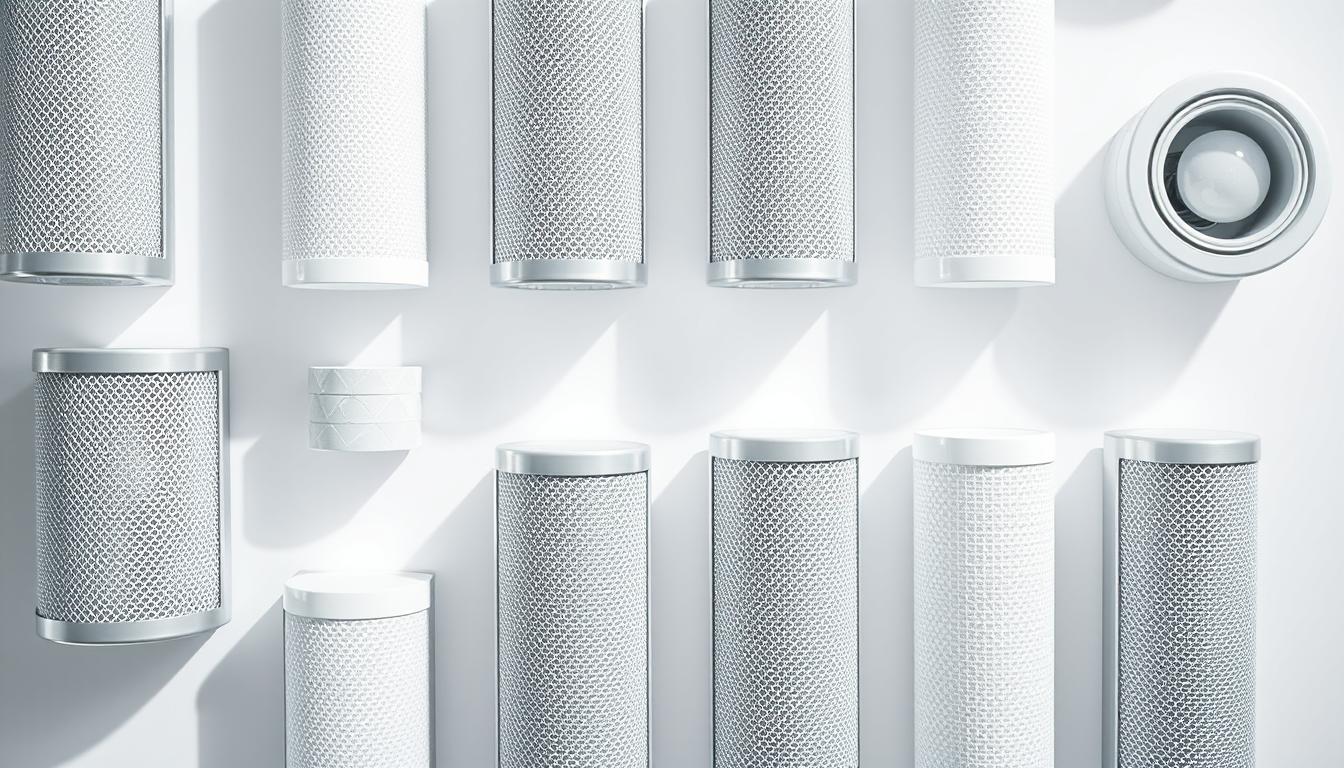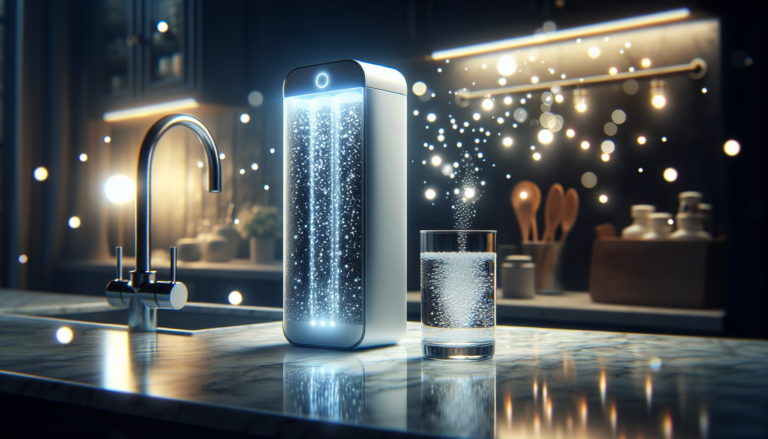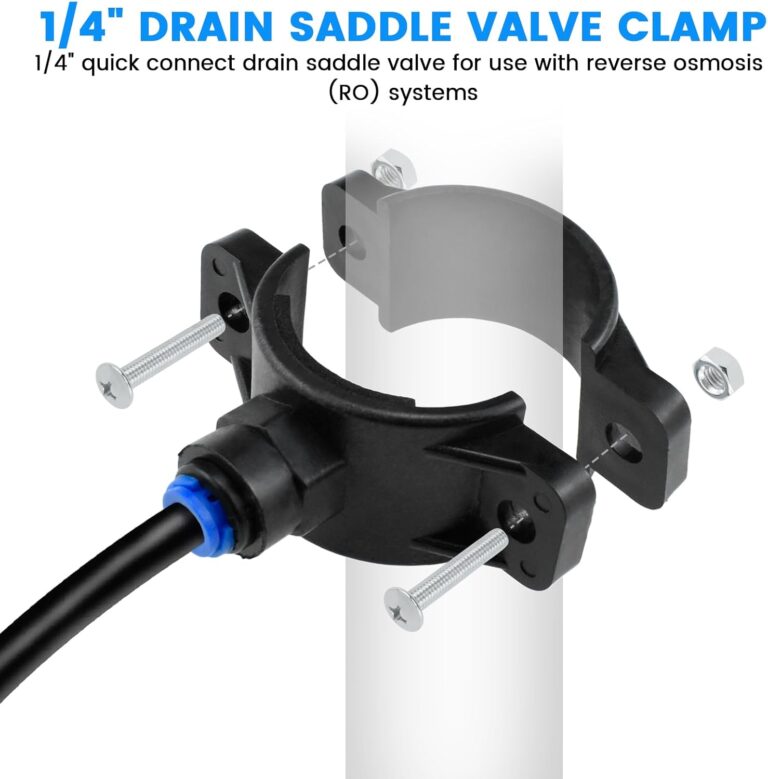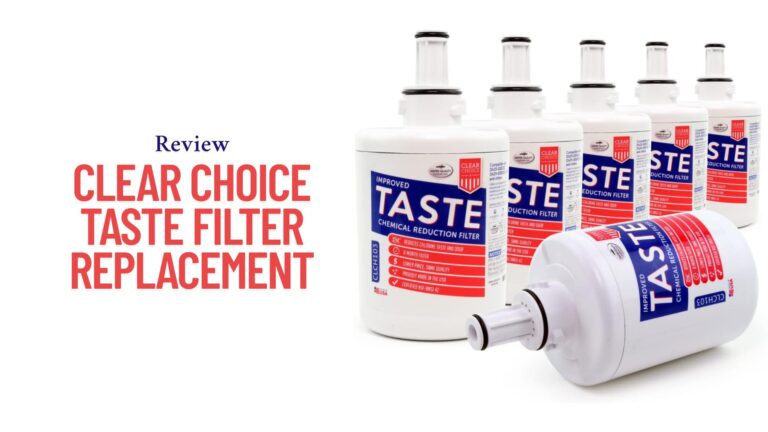Refrigerator Filters: Your Ultimate Resource
Did you know that contaminated water from your refrigerator can contain up to 140 contaminants, including lead, chlorine, and bacteria? This shocking fact highlights the importance of having a reliable refrigerator filter in your home.
A good refrigerator filter not only improves the taste and odor of your drinking water but also ensures the health and safety of your family. With so many options available, choosing the right filter can be overwhelming. That’s why our comprehensive guide is here to help.
Our guide is designed to be your ultimate resource for everything related to refrigerator filters, providing you with the information you need to make an informed decision.
Key Takeaways
- Understand the importance of refrigerator filters for your family’s health.
- Learn about the different types of refrigerator filters available.
- Discover how to choose the right filter for your refrigerator model.
- Find out how to maintain your refrigerator filter for optimal performance.
- Explore the benefits of using a high-quality refrigerator filter.
The Importance of Refrigerator Filters
Clean water is essential for a healthy lifestyle, and using a refrigerator water filter can significantly improve water quality. Refrigerator filters are designed to remove contaminants and impurities from the water, making it safe for drinking, cooking, and making ice.
Why Clean Water Matters
Water is a fundamental necessity for human survival, and its quality directly affects our health. Contaminated water can lead to various health issues, ranging from gastrointestinal problems to more severe conditions like cancer. Using a refrigerator filter ensures that the water dispensed from your refrigerator is clean and free from harmful substances.
Health Benefits of Filtered Water
Drinking filtered water has numerous health benefits. It not only improves the taste and odor of water but also reduces the risk of consuming harmful contaminants. Filtered water is also beneficial for cooking, as it prevents the transfer of unwanted tastes and contaminants to food. For more information on the effectiveness of refrigerator filters, you can check out this article on whether refrigerator filters really work.
| Benefits | Description |
|---|---|
| Improved Taste | Filtered water tastes better and is more refreshing. |
| Reduced Contaminants | Filters remove harmful substances, making water safer to drink. |
| Better Health | Consuming clean water contributes to overall health and well-being. |
As emphasized by health experts, “Drinking clean water is one of the simplest ways to maintain good health.” Ensuring your refrigerator is equipped with a reliable filter is a step towards a healthier lifestyle.
Everything You Need to Know About Refrigerator Filters!
Refrigerator filters play a vital role in purifying water, but have you ever wondered how they work? Understanding the mechanics behind these filters is essential for appreciating their importance in our daily lives. By grasping how they function and the contaminants they remove, you’ll be better equipped to choose the right filter for your needs.
How Refrigerator Filters Work
Refrigerator filters typically use a combination of activated carbon and mechanical filtration to remove impurities from water. The activated carbon is effective in eliminating chlorine, lead, and volatile organic compounds (VOCs), which can affect the taste and odor of water. Mechanical filtration, on the other hand, captures particulate matter and other impurities, ensuring the water is clear and clean.
Common Contaminants Removed
Refrigerator filters are designed to remove a wide range of contaminants, including chlorine, lead, mercury, and pesticides. The table below highlights some of the most common contaminants removed by these filters.
| Contaminant | Effect on Water | Removal Method |
|---|---|---|
| Chlorine | Affects taste and odor | Activated Carbon |
| Lead | Toxic to human health | Activated Carbon |
| Mercury | Toxic to human health | Mechanical Filtration |
| Pesticides | Harmful to human health | Activated Carbon |
By understanding how refrigerator filters work and the contaminants they remove, you can make informed decisions about your water quality.
Types of Refrigerator Filters
Refrigerator filters come in various types, each designed to address specific water quality issues. Understanding these differences is key to selecting the most appropriate filter for your needs.
Carbon Filters
Carbon filters are among the most common types of refrigerator filters. They are effective at removing chlorine, taste, and odor from water, improving its overall quality. These filters work by using activated carbon, which attracts and traps impurities.
One of the benefits of carbon filters is their ability to improve the taste and smell of water. However, they may not be as effective against certain contaminants like heavy metals or nitrates.
Mechanical Filters
Mechanical filters work by physically trapping particles and contaminants in the water. They are often used to remove sediment, dirt, and other particulate matter. These filters can be very effective against certain types of contaminants but may need to be replaced frequently.
For more information on specific refrigerator models and compatible filters, you can visit this resource on GE Profile refrigerator filters.
Combination Filters
Combination filters integrate the benefits of both carbon and mechanical filtration. They not only remove particulate matter and sediment but also improve the taste and odor of water by removing chlorine and other chemicals.
| Filter Type | Primary Function | Effectiveness |
|---|---|---|
| Carbon Filters | Remove chlorine, taste, and odor | Effective against chlorine and improving taste/odor |
| Mechanical Filters | Remove particulate matter and sediment | Effective against sediment and particulate matter |
| Combination Filters | Combine carbon and mechanical filtration | Effective against a broad range of contaminants |
By understanding the different types of refrigerator filters available, you can make an informed decision that best suits your water filtration needs.
Popular Refrigerator Filter Brands
Choosing the right refrigerator filter brand is crucial for ensuring clean and safe drinking water. With numerous options available, consumers can choose between Original Equipment Manufacturer (OEM) filters and aftermarket alternatives.
OEM Filters
OEM filters are designed and manufactured by the same company that produced your refrigerator. They are tailored to fit your appliance perfectly and meet the manufacturer’s quality standards.
- Ensure compatibility with your refrigerator model
- Meet the manufacturer’s quality and performance standards
- Often come with a warranty
For instance, Whirlpool and LG offer OEM filters that are designed specifically for their refrigerator models, ensuring optimal performance and water quality.
Aftermarket Options
Aftermarket filters are produced by third-party manufacturers and offer a range of benefits, including cost savings and innovative features.
- Often more affordable than OEM filters
- May offer advanced filtration technologies
- Can be compatible with multiple refrigerator models
Brands like EveryDrop and PureWater provide high-quality aftermarket filters that are compatible with a variety of refrigerator models, offering consumers flexibility and value.
Cost Comparison: OEM vs. Aftermarket
When deciding between OEM and aftermarket filters, cost is a significant factor. While OEM filters are generally more expensive, they offer the assurance of compatibility and manufacturer-backed quality.
| Filter Type | Average Cost | Benefits |
|---|---|---|
| OEM Filters | $30-$50 | Guaranteed compatibility, manufacturer quality |
| Aftermarket Filters | $15-$30 | Cost-effective, innovative features |
Ultimately, the choice between OEM and aftermarket filters depends on your priorities regarding cost, quality, and compatibility.
How to Choose the Right Filter for Your Refrigerator
The right refrigerator filter is crucial for clean drinking water and optimal appliance performance. With so many options available, making an informed decision can be overwhelming. However, by understanding a few key factors, you can simplify the process and ensure you’re getting the best filter for your needs.
Identifying Your Refrigerator Model
The first step in choosing the right filter is to identify your refrigerator model. This information is usually found on the manufacturer’s label inside the refrigerator or in the user manual. Knowing your model number helps narrow down the compatible filter options, ensuring a proper fit and optimal performance.
Compatibility Considerations
Once you have your refrigerator model, consider the type of filter it requires. Different models may need specific filters, such as inline filters, cartridge filters, or whole-house filters. Checking the manufacturer’s recommendations is crucial to ensure compatibility and maintain your appliance’s warranty.
Filter Certifications and Standards
Look for filters that meet or exceed industry standards, such as those set by NSF International or the Water Quality Association. Certifications like NSF 42 or NSF 401 indicate that the filter has been tested for performance and safety. “According to NSF International, certified filters can remove a wide range of contaminants, from lead and chlorine to pharmaceuticals and microplastics.”
“Certification is key to ensuring your filter is effective against a broad spectrum of contaminants.”
Performance Ratings Explained
Performance ratings provide insight into a filter’s effectiveness. Look for metrics such as micron rating, which indicates the filter’s ability to capture small particles, and contaminant removal percentage. Understanding these ratings helps you choose a filter that meets your water quality needs.
By considering these factors, you can confidently select a refrigerator filter that ensures clean drinking water and maintains your appliance’s performance.
Step-by-Step Guide: How to Change Your Refrigerator Filter
Changing the filter in your refrigerator is a straightforward task that ensures you have access to clean and fresh water. Regularly replacing your refrigerator filter is crucial for maintaining the quality of your drinking water and the overall performance of your refrigerator.
Tools and Preparation
Before you start, make sure you have the necessary tools and the new filter ready. Typically, you’ll need a new filter compatible with your refrigerator model and possibly a screwdriver or wrench, depending on the filter’s location and type. Check your refrigerator’s manual or manufacturer’s website to find the correct replacement filter.
Removal Process
To remove the old filter, first, locate it according to your refrigerator’s manual. It’s usually found at the bottom or top of the refrigerator, or sometimes inside. Turn off the ice maker and water dispenser before starting. For most models, you’ll need to twist and pull the filter to release it from its housing. Be prepared for a small amount of water to spill out.
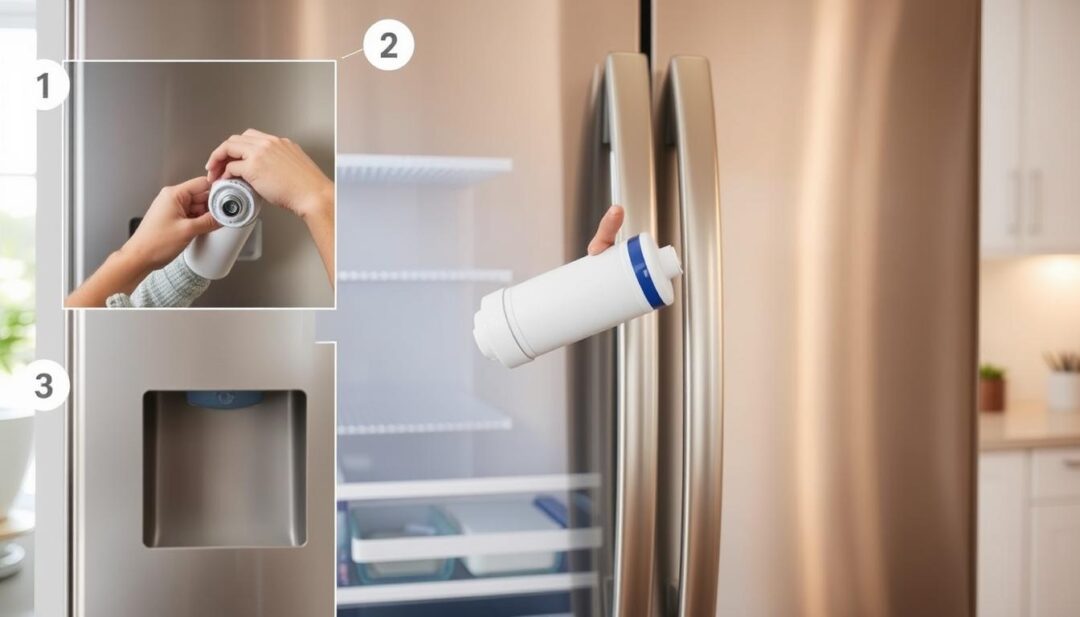
Installation Tips
To install the new filter, align it with the housing and twist it into place until it clicks or locks. Make sure it’s securely fastened to prevent leaks. After installation, run a few gallons of water through the dispenser to flush out any air or carbon fines from the new filter. This step is crucial for ensuring the water tastes fresh and clean.
By following these simple steps, you’ll be able to change your refrigerator filter with ease, ensuring your drinking water remains clean and fresh. Regular filter replacements are a simple yet effective way to maintain your refrigerator’s performance and the health of your family.
Best Refrigerator Water Filters on the Market
Refrigerator water filters are a crucial component of your appliance, and choosing the right one is easier than you think. With so many options available, it’s essential to consider factors like compatibility, performance, and user satisfaction to find the best filter for your needs.
Top Filters for Popular Brands
Different refrigerator brands have specific filter requirements. Here are some top recommendations for popular brands:
Samsung Filters
For Samsung refrigerator owners, the Samsung DA90T3241CB is a highly-rated option, known for its excellent contaminant removal and compatibility with various Samsung models.
LG Filters
LG users can rely on the LT1000P filter, which is designed to reduce lead, chlorine, and other contaminants, ensuring clean and fresh-tasting water.
Whirlpool Filters
The Whirlpool EveryDrop EDW-C-WH1 filter is a top choice, offering superior performance and compatibility with a range of Whirlpool refrigerator models.
GE Filters
For GE refrigerators, the GE MWF filter is a popular option, known for its effectiveness in removing impurities and improving water taste.
Best Budget-Friendly Options
If you’re on a budget, consider the EveryDrop ED-RF01 or the PureSource2 filters, which offer great value for their price without compromising on performance.
“Investing in a good refrigerator water filter is not just about cost; it’s about the quality of water you consume daily.” – Water Quality Expert
Premium Filter Recommendations
For those looking for premium quality, filters like the WaterChef U9000 or the FilterLogic series offer advanced filtration technology and longer lifespan, making them a worthwhile investment for many users.
Refrigerator Filter Maintenance Tips
Clean drinking water starts with a well-maintained refrigerator filter. Proper maintenance not only ensures the longevity of your filter but also guarantees that the water dispensed by your refrigerator is clean and fresh. In this section, we will explore essential tips on maintaining your refrigerator filter, including how often to replace it and signs that indicate it’s time for a change.
Optimal Replacement Schedule
The optimal replacement schedule for your refrigerator filter depends on several factors, including the type of filter and your household’s water consumption. Generally, filters should be replaced every 6 months. However, some high-quality filters can last up to a year.
Signs Your Filter Needs Changing
There are several signs that indicate your refrigerator filter needs to be changed. These include a noticeable decrease in water pressure, a change in the taste or odor of the water, and visible signs of wear on the filter.
Extending Filter Life
To extend the life of your refrigerator filter, regular checks are essential. Ensure that the filter is properly installed and that there are no leaks in the system. Additionally, using a filter with a high contaminant removal capacity can help in prolonging its lifespan.

| Filter Type | Average Lifespan | Contaminant Removal Capacity |
|---|---|---|
| Carbon Filter | 6 months | 99% Chlorine, Lead, VOCs |
| Mechanical Filter | 12 months | 95% Particulates, Sediments |
| Combination Filter | 9 months | 98% Chlorine, Lead, VOCs, Particulates |
Environmental Considerations and Recycling
With the rising awareness of environmental issues, it’s crucial to examine the ecological effects of disposable refrigerator filters. As consumers become more eco-conscious, understanding the environmental implications of their choices is vital.
Ecological Footprint of Disposable Filters
The production, use, and disposal of refrigerator filters contribute to their overall environmental impact. Disposable filters are typically made from a combination of materials, including plastics and activated carbon, which can have a significant ecological footprint if not managed properly.
Let’s examine the environmental impact through a comparative analysis:
| Filter Component | Environmental Impact | Potential for Recycling |
|---|---|---|
| Plastic Housing | Contributes to plastic waste | Yes, if properly processed |
| Activated Carbon | Resource consumption for production | Limited recycling options |
| Filter Membranes | Potential for microplastic release | No common recycling methods |
Proper Recycling of Used Filters
Recycling used refrigerator filters is a crucial step in mitigating their environmental impact. Although the process can be complex due to the mixed materials used in filter construction, several options are available:
- Participating in manufacturer-led recycling programs
- Utilizing third-party recycling services that accept filter cartridges
- Properly disposing of non-recyclable components
By understanding the environmental implications of our choices and taking steps towards more sustainable practices, such as recycling used filters, we can contribute to a healthier planet.
Conclusion
Now that we’ve covered everything you need to know about refrigerator filters, it’s clear that these simple devices play a crucial role in maintaining clean drinking water and a healthy household.
From understanding the different types of refrigerator filters to learning how to choose and maintain the right one for your appliance, you’ve gained valuable insights into optimizing your refrigerator’s performance.
By choosing the right filter, following proper maintenance tips, and considering environmental factors, you can enjoy clean, fresh-tasting water while also contributing to a more sustainable future.
With this knowledge, you’re empowered to make informed decisions about your refrigerator filter, ensuring the best possible water quality for you and your family.

